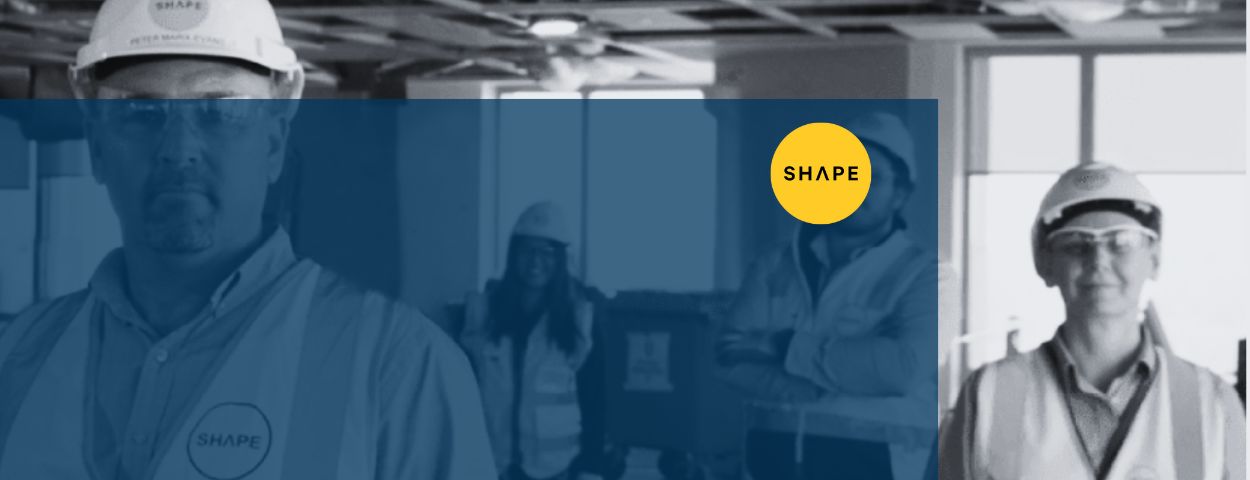Shape Group Case Study: Driving Success Through Culture Change
Background
Founded in 1989, Shape Group specializes in fit-out and refurbishment projects, managing over 3,000 subcontractors across seven states with annual revenues exceeding $600 million. Their core differentiator is their people, and their success depends heavily on a constructive and engaged culture. Over three decades, Shape experienced fluctuating business performance closely tied to its organizational culture.
The Challenge
In the mid-2010s, Shape Group faced declining business performance marked by aggressive and siloed leadership styles. The competitive, command-and-control culture fostered internal rivalries and inefficiencies, with revenue per employee stagnating at $800,000 annually. State-level disparities in leadership styles led to inconsistent employee experiences, hampering collaboration and client satisfaction. Recognizing these issues, the leadership team decided to prioritize culture as a strategic business driver.
Watch Shape Group’s Case Study Presentation
Actions Taken
- Diagnosing Culture and Leadership Styles: Shape utilized diagnostic tools such as the OCI (Organizational Culture Inventory) and LSI (Life Styles Inventory) to scientifically measure and analyze cultural dynamics and leadership styles.
- Leadership Development: Key leaders, including the CEO, were accredited in LSI to model constructive behaviors and establish a consistent leadership style across the organization. Leadership training became a cornerstone for building trust and collaboration.
- Inclusive Engagement: Shape introduced interactive group sessions using Human Synergistics tools like the GSI (Group Styles Inventory) to involve employees at all levels in the cultural transformation. Senior leaders personally facilitated these sessions, reinforcing commitment to change.
- Tough Decisions: Leaders who resisted the transition to a constructive style were replaced, ensuring alignment with Shape’s cultural goals.
- Ongoing Feedback and Sustainability: Over 50% of employees participated in LSI programs, with regular follow-ups, debriefs, and re-measures. Shape also implemented state-level OCI committees to localize and sustain cultural action plans.
Outcomes
The cultural transformation yielded significant improvements across Shape Group’s performance metrics:
- Revenue Per Employee: Increased from $800,000 to $1.8 million annually.
- Profit Growth: Average annual profit improved by 84% between 2016 and 2018.
- Employee Retention: Unplanned staff turnover rates dropped significantly, with some states achieving zero turnover during transformation periods.
- Client Satisfaction: Shape achieved world-class levels of client satisfaction, reflecting stronger subcontractor relationships and collaborative project delivery.
- Leadership Excellence: Over 15 internal practitioners now facilitate ongoing leadership development, embedding constructive behaviors throughout the organisation.
Next Steps
Shape Group remains committed to sustaining its cultural journey. Future initiatives include:
- Deepening Subcontractor Engagement: Expanding the application of GSI to subcontractor teams to foster collaborative, high-performing project environments.
- Continuous Improvement Programs: Ongoing training opportunities for employees to refine their effectiveness and leadership capabilities.
- Measuring and Refining Impact: Regular culture diagnostics to ensure alignment with strategic objectives and identify new areas for growth.
Interested in learning more about Shape?
Download the Shape Case Study
